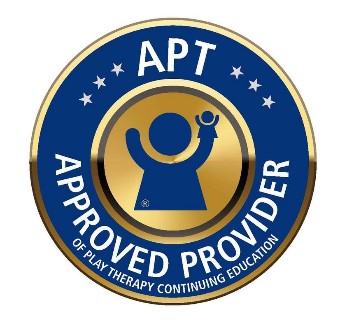Order in the Court: Testifying in Court for Play Therapists and Other Mental Health Professionals
Improve your confidence in testifying in court as a play therapist or mental health professional who works with children and families
Description
Play therapists and other mental health professionals who work with children and families are quite frequently asked to testify in court. What is your attitude when this happens? Do you dread the possibility of getting subpoenaed or being asked to testify in court cases? Or, do you feel competent to take the stand and answer questions in clear and profession way? Join Judge Linnea Nicol (expert in the legal system) and Dr. Terry Kottman (expert in play therapy) in this practical, experiential class designed to help you feel more confident about testifying in court. You will learn about legal issues related to being a play therapist, child counselor, or family therapist working with children and families. Through lecture, discussion, and role playing, you will gain knowledge and skills that will increase your level of competence and professionalism when interacting with lawyers and judges
 8 Non-Contact CE hours (8 hours on Play Therapy Special Topics)
8 Non-Contact CE hours (8 hours on Play Therapy Special Topics)
APT Approved Provider 99-055

League of Extraordinary Adlerian Play Therapists (LEAPT) has been approved by NBCC as an Approved Continuing Education Provider, ACEP No. 7402. Programs that do not qualify for NBCC credit are clearly identified. League of Extraordinary Adlerian Play Therapists (LEAPT) is solely responsible for all aspects of the programs.
Objectives
At the end of this workshop, participants will be able to…
- Recognize and articulate their fears about testifying in court.
- Describe 3 strategies to reduce fear and anxiety around providing testimony.
- List 10 tips for play therapists, child counselors, and/or family therapists on testifying in court.
- Describe 3 things a play therapist, child counselor, or family therapist might be asked to testify about in regard to divorce or child custody matters.
- Explain the guidelines for child custody evaluations in family law proceedings and how those guidelines could apply to play therapists, child counselors, or family therapists.
- Describe what a play therapist, child counselor, or family therapist might do when he/she/they does not know the answer to a question put by a judge or lawyer in a court action.
- Describe the process by which play therapists, child counselors, or family therapists might need to go through to establish themselves as expert witnesses.
- Delineate what happens in a “child in need of assistance” proceeding in juvenile court and explain how a play therapist, child counselor, or family therapist might play a role in such a proceeding.
- Describe the process a play therapist, child counselor, or family therapist should go through to prepare to testify in court.
- Explain how to identify a valid subpoena and what to do when you are served with a subpoena.
- Demonstrate the ability to define the limits of their scientific method, treatment protocol, or counseling methodology for lay people and the Court.
Agenda
8:00 AM Start
10:15 AM Break #1 (15 mins)
12:00 PM Lunch (60 minutes
1:00 PM Resume Class
3:00 PM Break #2 (15 mins)
5:30 PM End